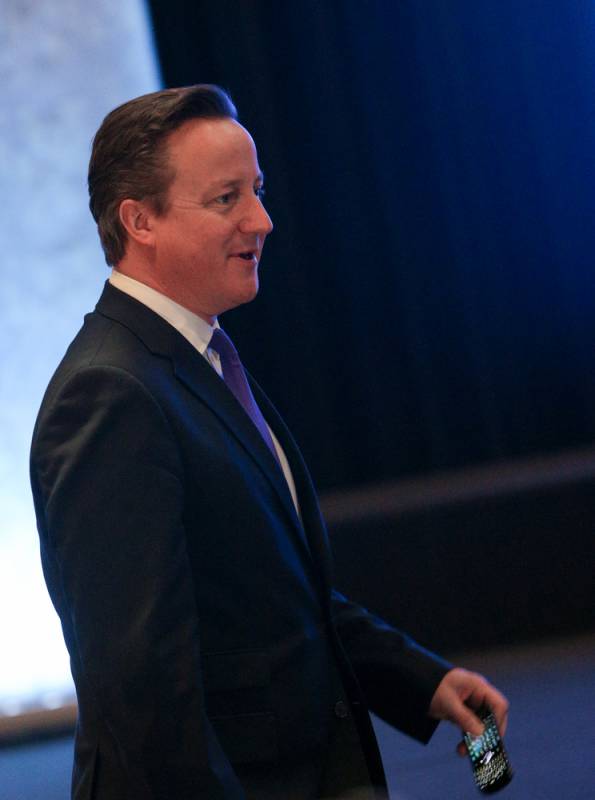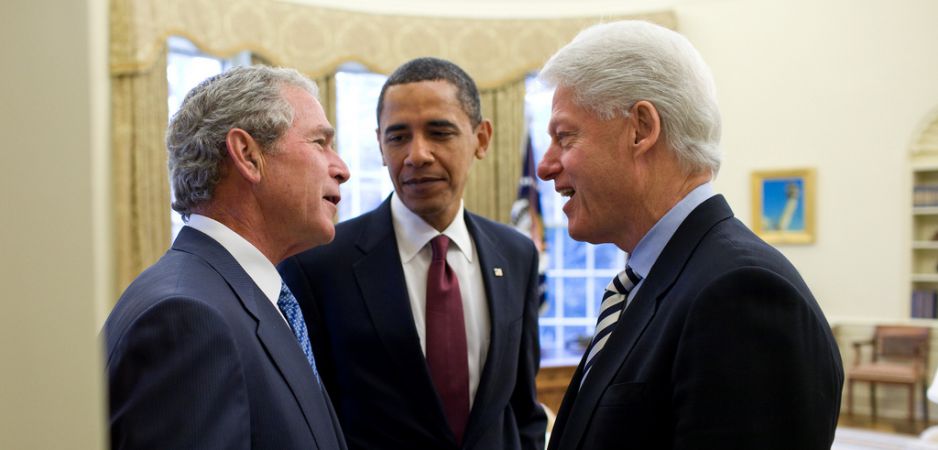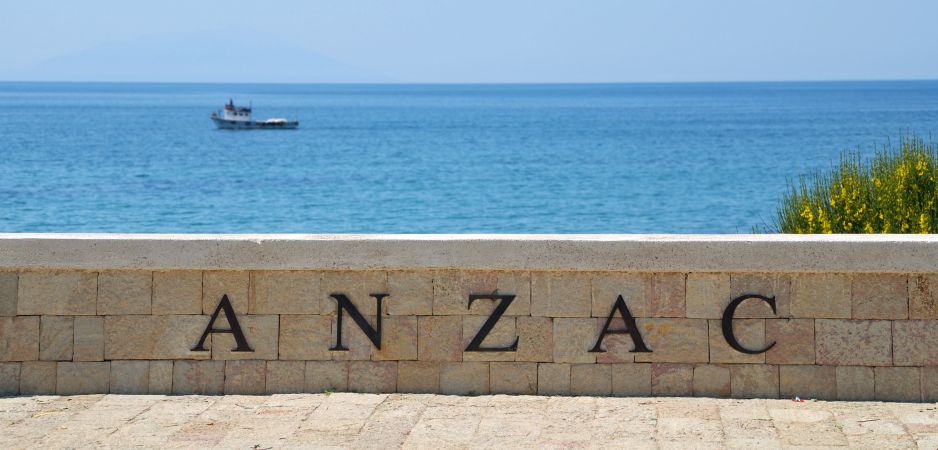Known devils like David Cameron are better than unknown devils such as French soldiers in Africa or Sunni Islamists in Pakistan.
British Prime Minister David Cameron has led the Conservatives to an emphatic victory. He ran a lackluster campaign and made a few gaffes, but his opponents were too dull and boring to win. Only Nicola Sturgeon of the Scottish National Party (SNP) caught the imagination of the people, and her party has decimated Labour in Scotland. In previous elections, Labour had relied on its Scottish fiefdom to propel it to power. Now, it faces prospects of languishing in opposition much like the Conservatives during the heyday of Tony Blair. At least, Labour can take solace from the fate of the perennial bridesmaid of British politics. In the words of Nick Clegg, the former leader of the Liberal Democrats, his party suffered “a cruel and punishing” night and might be on the verge of extinction.
The Economist, once the trumpeter of the British Empire, claims that “British elections matter beyond Britain’s shores.” The truth is that the sun has set on that era. The elections are significant for Britain because a new era of fragmentation has dawned in the island’s politics. The Conservatives have emerged stronger after the election. The weakening of Labour and the decimation of the Liberal Democrats is jolly good news for the likes of Old Etonians such as Cameron, George Osborne and Boris Johnson. The rise of the SNP signals that the marriage between Scotland and England is on the rocks. Both countries have different political and economic ideologies. With the SNP sweeping Scotland, it is a question of time before the flags for independence are unfurled again.
The real significance of the Conservative victory is twofold. First, a country with a current-account deficit of 5.5% and a budget deficit of 5% has voted for frugality. The Tories are trusted to be “conservative” with people’s money. Second, prosperous voters in Britain, who tend to be older, are more organized, disciplined and united. The pain of British austerity has fallen disproportionately on the poor and the young. Yet the Conservatives have been able to sell what The Economist calls “a jobs-rich, squeezed-wage recovery” as a preferable alternative to the southern European malaise of mass unemployment. This is clever marketing, and one has to bear in mind that this class-divided country’s pragmatic elite has consistently reinvented itself. The onset of democracy was supposed to decimate the Conservatives, but they dominated the 20th century. They might well continue that domination in the 21st century.
Fundamentally, Britain is an island where London dominates the country. Canary Wharf and the City of London, that square mile of resplendent stone architecture, make London the throbbing heart of international finance. Yet Britain has few world beating companies. It is not home to a Google or a Toyota. Expensive private schools, incongruously called public schools, are the only ticket to advancement in British society whether it is law, media or politics. The state school system is broken and parents with means send their children to schools like Eton, Westminster or Winchester. This means that Britain’s incestuous elite has little in common with the hoi polloi. In more ways than one, Britain is a pre-modern society where a smug group of insiders rule the roost in a manner reminiscent of the 19th century. It is no coincidence that both Conservatives and Labour leaders studied Philosophy, Politics and Economics (PPE) at Oxford. Alumni from Oxford and Cambridge, collectively known as Oxbridge, run the show in Britain. Those who fail to get into these spectacularly beautiful places find it hard to break through the thick glass ceilings of British society.
Yet Britain’s incestuous elite is smart enough to maintain rule of law and attract billionaires to live in London. The United Kingdom can afford to run a current account deficit because capital continues to flow into the country. Rich Russians continue to buy mansions in London. So do Indians and others. Before the financial crisis, numerous foreign companies listed on the Alternative Investment Market (AIM), many of them from countries like Russia, Poland and China. The frenzy at AIM caused a well-known partner at a leading law firm to comment that the legitimization of ill-gotten gains of criminal syndicates across the world was bringing much wealth to his green and blessed isle. Britain may manufacture little these days, but it is a safe destination for wealth, regardless of how foreigners garner their riches. The British creed is simple: You can rob any part of the world and bring your money with you, but behave when you get here. The Conservatives understand this and it seems so do the voters. In the modern service economy of Britain, most seem happy to serve the likes of Roman Abramovich and Rupert Murdoch for some bread and a bit of butter.
While the British steam on smoothly with continuity amidst change, the French are floundering. In December 2013, La Grande Nation was quick to dispatch troops to the Central African Republic. A classified United Nations (UN) report reveals that French troops were engaged in more than peacekeeping. Some Frenchmen were raping young savages of the “Dark Continent” with some victims as young as 9 years old. Phenomena like this constantly take place when any foreign intervention occurs whether it is peacekeeping, development or good old mission civilisatrice.
People like Tony Blair and neoconservatives in Washington DC imagine themselves as enlightened members of advanced societies. They send troops to establish peace, promote democracy and foster development. These troops subconsciously if not consciously feel superior. Locals invariably end up resenting them. Some of these troops react disproportionately to protests by crowds or attacks by insurgents. Others abuse power because they are only too human. Besides, if the locals look different or speak another language and are deemed to be less evolved beings from “primitive” societies, then it is easier to transgress norms of propriety or legality and exploit them.
The French are not the only villains in town. As per a report of the Colombian government, US troops sexually abused at least 54 children in that country whilst conducting the War on Drugs between 2003-07. Needless to say, US media has blissfully ignored this. French crimes would have gone unnoticed too, thanks to the efforts of the UN to cover-up. Anders Kompass, a Swedish official, leaked the report that chronicled French crimes. Kompass has since been suspended for sharing confidential information and breaching UN protocol. In the eyes of UN bigwigs, this is perhaps a wise and just move.
In Pakistan, Sabeen Mahmud, a peace activist in Karachi, was assassinated by gunmen after an event that she called “Un- Silencing Balochistan.” Mahmud was shedding light on grave human rights abuses by the Pakistani Army and its shadowy surrogates whom many people hold responsible for thousands of deaths and disappearances in the country’s biggest province. In the words of Sanam Maher, “corpses are found daily in the Balochistan countryside, bearing the marks of torture.” The Pakistani government is believed to follow a “kill and dump” policy in its resource-rich but poverty-stricken province. Mahmud was planning to host the event at the Lahore University of Management Sciences (LUMS), but the school reportedly cancelled it because of government pressure. LUMS is a relatively new school that has become the training ground for technocrats in Pakistan, but it demonstrated abject pusillanimity in pulling the plug on Mahmud’s event.
The death of Mahmud is only the latest tragedy in a litany of violence that is wrecking this young nation. Muhammad Ali Jinnah, the Shiite founder of Pakistan, set out to create a state based on Islam. The name of the country means “Land of the Pure” and is derived from Farsi. It is this terrifying idea of purity that has proven to be toxic. Whilst India has a significant Muslim population, Pakistan chased out or killed its Hindu and Sikh minorities when it was carved out of India in 1947. Of late, Sunni Islamists have been gunning down Shiite professionals, a fact that would be causing Jinnah to toss and turn in his grave.
Many Pakistanis joke about Allah, Army and America as the three gods that run their country. Those who love Allah do not like women like Mahmud who are deemed unchaste and ill-behaved. The Army has long used lovers of Allah such as the Taliban to fight its proxy wars in Afghanistan and India. Now, the violence that the Army once exported has turned inward and the country is imploding. Too many who raise their voice against the status quo die like Mahmud or disappear forever. To steal a line from Hamlet, something is rotten in the state of Pakistan.
This week, three interesting developments took place when it comes to the world economy. First, the US economy grew by a measly 0.2% in the first quarter. Most blame a harsh winter and a labor dispute at California’s ports for the slowdown. Second, Apple sold more phones in China than in the US during the first quarter. This is the first time China has beaten the United States to become Apple’s largest market. This has happened at a time when the Chinese leadership is trying to unleash the genie of entrepreneurship among its youth. It is also trying to bring about massive reforms that stimulate growth and create jobs.
Finally, economies around the world are facing challenges that are both similar and different. Both Brazil and Sweden are struggling to generate growth and create jobs. But Brazil faces the specter of inflation, while Sweden is striving to slay the monster of deflation. The former has increased its benchmark interest rate by 0.5% to 13.25%, while the latter is enlarging its quantitative easing, the purchase of government bonds by the central bank to release money into the economy. As the old Chinese saying goes, we live in interesting times.
[seperator style=”style1″]Britain Needs More Accountability[/seperator]
The UK General Election campaigns of 2015 offer practically no promises on official accountability.
The 2000s were the most scandal-ridden decade in British politics: Politicians sold their favors and claimed false expenses; politicians and their lackeys lied over war in Iraq; police and other officials sold private information; and lazy or misguided police and social workers ignored organized sexual abuse.
Meanwhile, criminal justice was undermined by judges who empathized with the criminal rather than the victim — essentially lawless immigration, scandalous health and social care without criminal accountability, and exploitation of welfare benefits without significant risk of investigation.
Yet few have been held to account, while the current general election campaigns promise no effective improvements in accountability.
The political elite is better at leveling the supposed privileges of others than itself. In the last two decades, Britain has recognized a new elite of “spin doctors” (political marketers), “QUANGOs” (quasi-nongovernmental organizations, with powers to regulate private sectors and public services, but with little accountability), “think tanks”… Read more
[seperator style=”style1″]The Sound of Silence in South Asia[/seperator]
Outspoken people in South Asia have been silenced by those who believe only one truth should exist.
Avijit Roy, a Bangladeshi writer and an acclaimed champion of “secularism” and freedom of expression, was killed on the streets of Dhaka on February 26. To deserve this brutal public execution, he “committed” two crimes. First, he had an opinion not shared by others in Bangladesh. Second, much of what he believed in was openly expressed through Mukta-Mona (Free Mind), a Bengali blog he established after moving to the United States in 2007.
Roy was not the first to be hounded or killed in Bangladesh for his opinions, and he will not be the last. But this is not only a Bangladeshi phenomenon. It is a form of global intolerance, which has a clear presence across South Asia.
In 2011, Salman Taseer, a Pakistani governor, was killed in Islamabad by one of his own bodyguards. Taseer’s crime was his defense of a Christian woman sentenced to… Read more
[seperator style=”style1″]Xi Jinping’s Crusade on Corruption in China[/seperator]
Xi Jinping’s crusade on corruption in China has dual goals of promoting good governance and reducing the widening income gap.
In 2014, China was ranked 100 out of 178 countries in Transparency International’s Corruption Perceptions Index. Since taking office in 2013, President Xi Jinping has led a renewed campaign to eradicate corruption, as shown by the July 2014 investigation into allegations against Zhou Yongkang, who was officially charged in April 2015.
Zhou was a member of the 17th Politburo Standing Committee (PSC), China’s highest decision-making body. In his capacity as a member of the PSC, Zhou also wielded a lot of clout and control over the nation’s military forces and the national oil sector. Xi’s campaign to eliminate corruption, however, has its roots in the Lai Changxing corruption scandal in the late 1990s, which involved the largest case of smuggling in Chinese history.
Lai Changxing founded the Yuanhua Group in Xiamen in 1994, where he began smuggling products like cars, oil and cigarettes into… Read more
[seperator style=”style1″]What Impact Has US Foreign Policy Had on the Muslim World?[/seperator]
Having suffered from Western interventions and internal decline, the Muslim world is unlikely to see much change.
There is a great deal of attention paid to events and issues across the Middle East. The region draws the eye of policymakers, commentators, analysts and the populations of these countries as a whole. Much of this focuses on violence, extremism, tribalism, corruption, resistance, dogma, authoritarianism, militarism and underdevelopment.
There is a perennial gaze that focuses on the Middle East as a collection of weakened nations susceptible to despotism, sectarianism and ideological and cultural backwardness. In the writings of Edward Said, this is described as Orientalism.
In left-leaning circles across Europe, the Middle East, Africa and Asia, considerable attention is given to the role of the US foreign policy apparatus and its implications for these regions. Inside the United States, however, such considerations are not always given the same degree of attention, allowing the status quo to prevail. Since 9/11, while America has continued its interventions… Read more
[seperator style=”style1″]The Message of Anzac: Put Out More Flags or Shut Up[/seperator]
Australia, a nation without enemies, is now spending $28 billion a year on the military and war, says John Pilger.
Following a week in Australia in which the words “heroes” and “heroism” bobbed on a tsunami of raw propaganda, a tribute is due to two unrecognized heroes. The first is Ray Jackson, who died on April 23.
Jackson spoke and fought for a truth that the powerful and bigoted hate to hear, see or read. He said this was a land not of brave Anzac “legacies,” but of dirty secrets and enduring injustices that only a national cowardice could sustain. “Conformity is widely understood and obeyed in Australia,” he wrote to me, “freedom is not.”
I first met Jackson in 2004 during the indigenous uprising in Redfern, Sydney, that followed the violent death of a 17-year-old, Terence Hickey. Known as “TJ,” he was chased by a police car, lost control of his bike and was impaled on an iron fence. The police denied… Read more
The views expressed in this article are the author’s own and do not necessarily reflect Fair Observer’s editorial policy.
Photo Credit: Frederic Legrand – COMEO / Slavko Sereda / Shutterstock.com
 We bring you perspectives from around the world. Help us to inform and educate. Your donation is tax-deductible. Join over 400 people to become a donor or you could choose to be a sponsor.
We bring you perspectives from around the world. Help us to inform and educate. Your donation is tax-deductible. Join over 400 people to become a donor or you could choose to be a sponsor.
Support Fair Observer
We rely on your support for our independence, diversity and quality.
For more than 10 years, Fair Observer has been free, fair and independent. No billionaire owns us, no advertisers control us. We are a reader-supported nonprofit. Unlike many other publications, we keep our content free for readers regardless of where they live or whether they can afford to pay. We have no paywalls and no ads.
In the post-truth era of fake news, echo chambers and filter bubbles, we publish a plurality of perspectives from around the world. Anyone can publish with us, but everyone goes through a rigorous editorial process. So, you get fact-checked, well-reasoned content instead of noise.
We publish 2,500+ voices from 90+ countries. We also conduct education and training programs
on subjects ranging from digital media and journalism to writing and critical thinking. This
doesn’t come cheap. Servers, editors, trainers and web developers cost
money.
Please consider supporting us on a regular basis as a recurring donor or a
sustaining member.
Will you support FO’s journalism?
We rely on your support for our independence, diversity and quality.













Comment